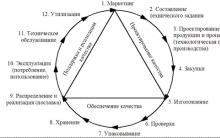Today it became known that Yandex.Taxi and Uber trip booking services are available in Russia, Azerbaijan, Armenia, Belarus, Georgia and Kazakhstan. Both applications will continue to work, while drivers will be transferred to a single platform, and they will be able to receive orders from both services.
“I think we have found a formula for growing unicorns in big company, - said Arkady Volozh, co-founder and CEO of Yandex. - Two years ago we separated Yandex.Taxi into a separate company and gave maximum freedom. The experiment with Yandex.Taxi exceeded many of our expectations, and I am sure that this is definitely not the last example.”
According to an April report by UBS Bank, Uber is the largest ride-sharing app in the world with a share of over 45%, while Yandex.Taxi is in tenth place with 1.8%. At the same time, in Russia, the share of users is higher for the Yandex service: 30% versus 18% for Uber. Both apps doubled their market share in 2016. The total capacity of the commercial transport market amounted to 526 billion rubles, in online orders it is 20%, but in five years it may increase to 80%. At the same time, market participants are actively uniting. This spring, the merger was announced by large aggregators RuTaxi (owner of the Vezet and Leader brands) and Fasten (Taxi Saturn and RedTaxi brands). The Village figured out what will happen to travel prices and the market in general after the merger of Yandex.Taxi and Uber.
What will happen to the services
Vladimir Isaev
Head of the press service of "Yandex.Taxi"
“The deal has been approved by the boards of directors of Uber and Yandex. It is subject to regulatory approvals and is expected to close in the fourth quarter of 2017. Both applications will be available to users.
Both applications will continue to operate under their own brands in the countries included in the agreement. Drivers and taxi companies will switch to a single platform for working with orders. This will increase the number of vehicles available for order fulfillment, reduce the time of their delivery, improve the reliability and quality of service in general.”
How will shipping prices change?
Vladimir Isaev
“We do not expect any radical changes in tariffs related to the merger, neither now nor in the future. The cost of the trip depends not only on the tariff of the carrier. "Yandex.Taxi" and Uber are systems of balance between demand (number of orders) and supply (number of drivers ready to take them) at each specific point in each city at each individual moment in time. The balance is achieved completely automatically.
For example, when it rains, the demand for taxis grows very quickly, while the number of available drivers grows more slowly. At such times, the algorithm may temporarily introduce a factor that raises the price to quickly equalize the balance between supply and demand. The coefficient, in turn, attracts new drivers with increased earnings, stimulating them to get on the line as soon as possible in order to start taking orders. The more drivers get out, the faster the multiplier disappears.
In summary: the cost is formed automatically in real time, it depends not only on the tariff, but also on the current balance between supply and demand at a particular moment in time and for a particular point on the map.
What will happen to the market
Alexander Kostikov
director of corporate relations Fasten Russia
“Most likely, the market will become more understandable and transparent, as we said when our companies merged a little over two months ago. The process of consolidation is inevitable: in a couple of years, two or three large and strong players will remain on the market. And what we saw today fits into the logic of market development. Probably, this is the main thing that is now clear.
It will be easier to install general rules games. If there are not 20 disparate companies, but two or three large ones, they can always sit down at the negotiating table and interact with the authorities state power to shape a new regulatory reality.
Now it is difficult to say whether prices will change, because the price depends not only on the number of aggregators operating on the market. But, at least, if the price war between large aggregators stops, this will already be a great achievement.
Our integration process is now in full swing. Integration has already been carried out in a number of cities. We did not make any sudden movements, I think that our colleagues will not make them either. There are all applications and channels through which you can place an order - everything works for users. And this process happens gently and imperceptibly. In those cities where the integration has already been made, drivers receive orders that come through all channels of both companies. There is a gradual unification of the terms of cooperation.”
Stanislav Schwagerus
leader of the social movement Taxi 2018
“What is beautifully called the merger of Yandex.Taxi and Uber is, in fact, a camouflaged purchase “for a ruble” of an affiliate network of a global bankrupt. Financial pyramid Uber is collapsing - in France, Italy, Spain they act much tougher, but we have gone this way.
This will definitely lead to market monopolization. The question arises as to how Yandex will conduct this line of business in the future. If, as before, being a market participant, then the monopoly will not lead to anything good - neither for drivers, nor for consumers. It is quite logical (and I think the state will take certain steps to improve the regulatory framework) if Yandex turns from a market participant into an infrastructure system for organizing passenger taxis in Russia.
To regulate this sphere, the state needs to have the necessary technological tool. It is impossible to regulate the activities that take place on the Internet using analog methods by checking the documents of taxi drivers. Therefore, it is quite possible that Yandex will become a kind of authorized company for improving the regulatory sphere.
As long as Yandex.Taxi plays the role of a market participant, the situation for passengers and drivers will change for the worse. This is a further reduction in tariffs for drivers, and a deterioration in the quality of service for passengers. We need new rules of the game, which, apparently, we will see in the next few years.”
Ugulbek
taxi driver
“Only now I heard the news about the unification on Russian Radio. While the taxi company did not say anything, I did not discuss it with other drivers either.
Time will tell where this will lead. Falling prices should even out. And then at Yandex in general low prices went. Before, Uber and Yandex fought, but if they unite now and work together, we will be better off.”
The global services Uber and Yandex.Taxi have created a joint company in Russia, which will also operate in the markets of Kazakhstan, Armenia, Azerbaijan, Georgia and Belarus. The name of the new association is NewCo, the company will be registered in the Netherlands.
A package of 59.3% in NewCo went to Yandex, 36.6% to Uber, another 4.1% to employees. Under the terms of the agreement, the parties agreed to invest $100 million and $225 million respectively in the company. The world media called the agreement the departure of Uber from Russia and other CIS markets (except Ukraine). The price of Yandex shares on the Moscow Stock Exchange hit a historic high yesterday. The fortune of businessman Arkady Volozh, one of the co-owners of Yandex, grew by $200 million in one day.
Why did the deal happen? The agreement can be called the final chord in the fierce competition that Uber faces in the course of its active external expansion, in particular in Russia, world media write. The Yandex.Taxi service began operating in the Russian Federation in 2011, Uber - two years later. The latter developed quite aggressively, its share in 2016 was Russian market was about 18%, twice as high as a year earlier.
But Yandex is still ahead: it has 30%, and also doubles in a year. The volume of the taxi market in the Russian Federation in 2016 was estimated at about $ 9 billion, and recently it has been growing rapidly thanks to these two companies. There are not so many players on the market anymore - in April, large taxi aggregator services Fasten and RuTaxi announced the merger.
In addition to this tandem, as well as Uber and Yandex, a notable company is the Gett service, there are also smaller services - Maxim, Vazi and others. With the advent of Uber, competitors could not avoid a price war, and the reduction in the cost of trips led to a cooling of interest in this business on the part of drivers. Experts are sure that consolidation is overdue. “The Yandex.Taxi company set the goal of a large placement of shares, so it was necessary to gather the maximum audience at any cost. It is clear that in this price war, sooner or later, someone had to run out of money,” said Daniil Vakhovsky, marketing director of the Ukrainian service Uklon.
Who earned more? Uber does not disclose its revenue and profit data for individual countries, in 2016 the global company received $ 2.8 billion in losses. "Yandex.Taxi" in the Russian Federation was also unprofitable - $ 35 million loss in 2016. The service planned to make a profit only by 2021. In April, the Russian Kommersant wrote that Yandex.Taxi issued a mandate to JP Morgan to search for an investor with the intention of raising about $150-200 million for development, possibly in exchange for a stake of 13-17%.
One of the publication's sources suggested that the company needs funds for acquisitions on the eve of the expected market consolidation. "With this agreement, Yandex eliminates an aggressive competitor, which will ultimately lead to improved monetization and profitability," Sergey Libin, an analyst at Raiffeisenbank, told Reuters. Others add that the economics of the Uber project made it impossible to continue to subsidize trips given a small market share. Whereas the organic growth of the company is already on the verge of exhaustion, and it would be more difficult to increase further.
Why is Uber investing more money but getting less shares? The contributions were calculated based on the valuation of the companies made during the preparation of the agreement, says Chief Specialist for analytics and strategy of Mail.Ru Group Alexander Gorny. Uber didn't get much, and the company added more money to increase its stake. But still not enough money to make it 50%. Yandex was indeed significantly larger in all respects,” says Gorny.
“The Yandex.Taxi business in the region is larger than the Uber business, so it is logical that Yandex's share in the new company is larger. We consider the agreement very beneficial for us,” commented Uber.
Uber has profit problems in other markets as well. Why is he leaving Russia? While such a move is indeed rare for a company that is still expanding its geography more often than narrowing it down, this happened to Uber not only in Russia. Last year, Chinese company Uber China teamed up with local rival Didi Chuxing. It was the latter company that became the platform for the unification. Prior to this, Uber had spent billions of dollars on subsidies for local drivers and still could not withstand a tough price war.
After the merger, he received a 17.5% stake in the joint venture, which corresponds to about $ 8 billion. At the same time, the company does continue to suffer losses in India and Southeast Asia, writes Bloomberg. The agency's analysts predict that the agreement in Russia will be a precursor to further consolidation processes in this part of the world, including in large emerging markets.
So what will both companies get in the end? First of all, mutual access to markets and capital. Today Uber is available in 16 cities of Russia, Yandex.Taxi - in 126 cities and six countries. Accordingly, as a result of the deal, Uber will gain access to all other cities in Russia, Armenia, and Georgia. Whereas Yandex.Taxi automatically enters the Azerbaijani market, where Uber operates. According to the Russian RBC, before the agreement, the daily number of taxi rides from Yandex was 500,000, from Uber - 160,000 (the combined Fasten service, according to the company itself, has 1.5 million trips per day).
Now the former competitors from the new tandem expect to serve 35 million trips together, total cost which will amount to about $ 135 million. That is, in terms of revenue total share NewCo in the market will be about 16%. The tandem participants themselves estimate the value of the new company at $3.73 billion. It will work on the same technology platform, but both applications will still be available to users.
Will taxi prices go up now? Analysts disagree. Some believe that yes, since it is precisely the cessation of price dumping that is one of the goals of the association. Others are sure that prices will remain the same as long as there is still competition, and perhaps the market will continue to grow. The founder of the Gett service, Dave Weiser, has already predicted that prices will rise, and the margins of this business in Russia will stabilize. Representatives of the new company themselves assure that there are no plans to revise tariffs yet. In any case, the agreement will still be carefully studied by the antimonopoly authorities, which must give their opinion within 30 days.
And what about Uber in Ukraine, why didn’t the company enter into the agreement? Most likely, because of the political risks that the Yandex brand bears in Ukraine. “In Ukraine, the Yandex and Yandex.Taxi companies are under sanctions in accordance with the order of the president and the decision of the National Security and Defense Council,” recalls Daniil Vakhovsky. At the same time, he suggests that the deal could also include Ukrainian business, but without advertising it.
“It is quite possible, because the agreement has not yet been closed, its details have not been made public, which means that we may not know everything,” he says. Is such a consolidation of the taxi market in Ukraine possible in the near future? Not likely, says the expert.
“Firstly, because all players in Ukraine are quite independent, and secondly, because our market is in a much less adequate state in terms of regulation than in Russia. There, after all, it is more civilized and orderly,” Vakhovsky believes. The press service of Uber previously reported that Ukraine is not part of the agreement with Yandex. But they added that because of her, Uber abandons its previously announced plans to open a central office in Kyiv to work in the CIS.
If you have read this material to the end we hope this means it was helpful to you.
We invite you to become part of the Mind Club. To do this, you need to subscribe for $7 per month.
Your support is very important to us!
Why are we introducing a paid subscription?
Real high-quality and independent journalism requires a lot of time, effort and expense, it really is not cheap. But we believe in the prospects of business journalism in Ukraine, because we believe in the prospects of Ukraine.
That is why we create the possibility of a paid monthly subscription - Mind Club.
If you follow us, if you like and appreciate what we do, we invite you to join the Mind community.
We plan to develop the Mind Club: the volume of materials and available services and projects. Already today, all members of the club:
- Help create and develop high-quality independent business journalism. We will be able to further develop and improve the quality of our materials.
- Get a banner-free site.
- Get access to "closed" Mind materials (to a monthly issue in which we research and analyze how entire industries work, to weekly analytical results).
- Free access to Mind events for subscribers and special conditions to other Mind events.
- smart power. Business owners who become Mind subscribers will have access to a system violations aggregator from Mind analysts and Tell.ia partners. If your business has problems with dishonorable officials or competitors, we will analyze whether their behavior is systemic, and together we can solve this problem.
- We will continue to develop Mind and add useful journalistic sections and services for your business.
We are working to ensure that our journalistic and analytical work is of high quality, and we strive to do it as competently as possible. This requires financial independence. Support us for only 196 UAH per month.
Monthly support from 196 UAH Donate to the project once
I found out how all this will work and who will benefit from the merger of the two market giants.
What are the conditions for joining?
The parties have already disclosed the financial part of the issue. Uber will invest in new company 225 million dollars and will receive 36.6 percent of the shares, "Yandex" - 100 million dollars for 59.3 percent of the shares. estimated at $3.7 billion, it will operate in six countries and 127 cities, making 35 million trips worth 7.9 billion rubles. Yandex will also develop the UberEATS food delivery business based on Yandex.Maps walking routes.
What was the market like before the merger?
According to Lenta.ru sources, in 2016 Yandex.Taxi drivers made more than 16 million trips per month, more than 500,000 trips per day. Uber, the second in the market, had 4.8 million trips per month, or 160,000 per day, while Gett, which closed the top three, had 4.3 million trips per month, or 143,000 per day.
Photo: Evgeny Pavlenko / Kommersant
In the same year, experts from the analytical center estimated the total volume of the legal taxi market at 441 billion rubles, and illegal taxis at 116 billion rubles. According to them, 338,000 taxi drivers are constantly working in Russia, and the number of issued licenses exceeds 457,000.
There are over 47,000 licenses in Moscow, and over 105,000 in the Moscow region. This is due to the fact that today licenses in the capital are issued only to yellow cars, and in the Moscow region the official color of a taxi is white, that is, the car does not need to be repainted or pasted over with a film.
Most of the cars belong to taxi companies, and Yandex.Taxi, Uber and Gett act as order aggregators, that is, a more advanced analogue of dispatching. For using their system, they charge taxi companies a monthly commission and take 15-20 percent from each trip. Taxi companies themselves earn by renting cars, receiving up to 2 thousand rubles from taxi drivers daily.
The average revenue of a taxi driver in Moscow is 7.3 thousand rubles a day, in St. Petersburg - 6 thousand rubles, in million-plus cities - 3.5 thousand rubles. Most drivers are registered as individual entrepreneurs and are not officially on the staff of taxi companies from which cars are rented.
What changes await drivers
Uber and Yandex.Taxi will unite the databases of drivers, in addition, they will use the maps and algorithms for distributing Yandex orders. In theory, it will become easier for taxi drivers to navigate the city, since the Yandex navigator objectively better service used in the Uber app. The combined base (again in theory) will increase the number of free cars, which will reduce the time of filing and reduce the cost of travel.
However, the taxi drivers themselves are not very happy about this. Said, the driver of Yandex.Taxi, told Lente.ru that the abundance of free cars will increase competition, but reduce the workload of drivers. This means fewer trips. “This is all, of course, very cool, but I pay 1,850 rubles a day for a rented Ford Focus. And also gasoline - the car "eats" 10 liters per 100 kilometers, which is 370-400 rubles. Plus a commission of 800 rubles - formally it is paid by the taxi company, but in fact I am. The average order I have now is 300 rubles, I make 15 such orders. So consider how much I will earn, ”he complains.

Photo: Anton Belitsky / Kommersant
Uber driver Alexey agrees with him. “You can’t work without a license now, plus soon we will be completely bent over with color, in Moscow all cars must be yellow, and pasting over with a film even on an acquaintance costs 30-40 thousand. Yes, now we will fight for every order, passengers will surely like it. But we will definitely be able to raise less money, and migrants will squeeze us out. They are ready to plow on speeds [amphetamines] for 20 hours, but we are not. Although where you go, you have to, ”he says.
Aleksey also noted that drivers would most likely start working part-time as a private driver. “You step into the night and stand at points where there are a lot of people. It is often possible to negotiate for cash. And in the morning you are already taking orders from Uber. True, for this you have to have your own car, in the taxi fleet they will quickly cut through that you are shaking for days, and will not allow you to constantly go on a flight, ”sums up the taxi driver.
Will passengers like the changes?
In theory, the combination of driver databases and a single navigation from Yandex will increase the speed of car delivery and allow taxi drivers to better navigate cities. “This is very important, because 80 percent of drivers are from the CIS,” explains a Lenta.ru source in one of the taxi services.
On the other hand, the price war between Yandex.Taxi and Uber, which irritated taxi drivers, but users really liked, will end. Both companies constantly dumped and introduced new options: in February they set fixed prices, and in April Yandex.Taxi supported Uber's announced price cuts of 10-50 percent.

Photo: Alexander Koryakov / Kommersant
At the same time, in order to save income, both companies introduced the so-called zones of high demand, where, depending on the time of day and the workload of drivers, the cost of the trip increased. True, this led to the fact that during peak hours, tariffs soared by 200 percent, and in case of bad weather, a 15-minute route cost a conditional 800 rubles.
Nevertheless, the unification of Yandex.Taxi and Uber is unlikely to reduce the cost of travel. On the contrary, the combined company will actually become a monopolist in the market, which means that it will not only be able to dictate pricing policy, but also not to take into account the opinion of taxi drivers, who, due to the increased number of free drivers, will have no choice but to accept the new rules of the game.
This means that passengers will continue to be transported, including taxi drivers who do not know the city, but work for 20 hours and receive a penny for this. Only the price for their services is likely to increase, because now the union of Yandex.Taxi and Uber need not be afraid that their orders will be picked up by drivers of a competing service.
and Uber have decided to merge their online ride-sharing businesses and form a new company to do so, the companies said. The combined company will operate in Russia, as well as in Azerbaijan, Armenia, Belarus, Georgia and Kazakhstan. Uber's business in Ukraine is not part of the deal, an Uber spokeswoman said.
In Russia as in China?
Last summer, Uber sold Chinese business local competitor Didi Chuxing Technology. In China, the company was losing about $1 billion a year and decided to give up the fight for the market.
Immediately after the announcement of the deal at 13.00 Moscow time, Yandex quotes on the Moscow Exchange soared by almost 7%, and then continued to grow and by 13.40 Moscow time grew by more than 17% to a historical maximum of 1915 rubles.
Uber and Yandex decided to invest $225 million and $100 million respectively in the new company, valuing the combined company at $3.725 billion. The company will be 59.3% owned by Yandex, 36.6% by Uber, and 4.1% by employees of the combined company. “Our teams will be united. I'm becoming CEO united company,” said Tigran Khudaverdyan, CEO of Yandex.Taxi. According to Khudaverdyan, the companies want to build a “personal public transport» - an alternative to a private car, buses and metro.
Who won, who lost?
The Financial Times writes that in this way Uber is losing the Russian taxi market to Yandex after several years of tense competition. The newspaper points out that this is the first strategic move by Uber since the scandalous departure of the founder of the service, Travis Kalanick.
A player with a dominant position in the market, close to a monopoly, is being formed, says Alexander Frolov, partner at the Target Global venture fund. According to him, the fund invested in the American taxi service Juno. The united player will complicate the development of other services, such as Gett, City Mobil, "Lucky", Frolov believes. He saw a similar example in China, when local carrier Didi Chuxing also teamed up with Uber. Previously, services actively competed, which resulted in favorable tariffs for users. But now the dumping period is ending, Frolov is sure.
Partner of UFG Private Equity (invested in the combined company of RuTaxi and Saturn) Artur Akopyan believes that the deal between Uber and Yandex.Taxi was the result of subsidies from services: in a highly competitive environment, companies reduced prices and actually reimbursed the cost of trips to both drivers, as well as passengers. According to his estimates, companies spent tens of millions of dollars every month on subsidies. The market simply cannot maintain such a level of competition for a long time, Akopyan says. He recalls that the merger of RuTaxi and Saturn was one of the first signs of imminent market consolidation. He believes that in the end, two or three players should remain from the variety of companies, and taxi prices will rise.
“This merger will increase the number of orders and the volume of trips for taxi companies that previously worked with only one of the aggregators, as well as simplify the access of taxi companies to a larger number of passengers. Combining the platform for drivers Uber and Yandex.Taxi will allow more efficient distribution of orders between drivers and reduce idle run time, which will positively affect earnings. On the other hand, I do not think that the tariff policy of services will change - the new structure still has a large number of competitors, such as Fasten, RuTaxi, Maxim and Gett, which occupy significant market shares. Any decisions of the united company, leading to an increase in tariffs for taxi companies, will only lead to the flow of partners and drivers to competing companies, which will have a negative impact on the quality of service. It is unlikely that Yandex and Uber do not understand this, ”Irina Zaripova, chairman of the public council for the development of taxis, told Vedomosti.
Applications will remain
After the deal is closed, both applications for ordering trips - both Yandex.Taxi and Uber - will continue to be available to users. But taxi fleets and drivers will switch to a single technological platform, which will increase the number of cars available for fulfilling orders, reduce the time for their delivery, reduce idle mileage, and increase the reliability and availability of the service as a whole, the message emphasizes.
"The combined company will use Yandex's technologies and knowledge in the field of cartographic and navigation services and search engines and the experience of Uber as the world leader among online services for ordering trips," the parties noted.
The boards of directors of both companies have already approved the deal, now regulators must agree on it. The parties expect to complete the merger in the fourth quarter of 2017. “The FAS Russia has not received a petition to merge the Yandex and Uber businesses for online travel bookings in Russia and other countries. The shares of companies in this market will be determined in the course of a comprehensive consideration of the application upon receipt,” said the head of the Communications and information technologies FAS Elena Zaeva.
“According to Yandex forecasts, the share of their joint business with Uber will be less than 50% of the market. Accordingly, if the share of the combined company is less than 50%, and if it does not have a decisive influence on the functioning of the taxi market, does not interfere with competition in the market, the merger of the two companies will comply with the requirements of the antimonopoly law,” said BGP Litigation Senior Associate Anastasia Evtushenko.
According to statistics for the past June, the combined platform will cover 127 cities in six countries, both services account for 35 million trips per month, their total cost amounted to 7.9 billion rubles.
Not so long ago, the most popular taxi ordering services on the Russian market through special applications Uber and Yandex.Taxi informed the public about their merger. Despite this, both services continue to run using different software. Therefore, it is not surprising that people who often use the services of taxi services continue to argue about which is better: Uber or Yandex.Taxi.
In order to understand which company offers its customers the best service and the best prices, you need to take a closer look at the specifics of Uber and Yandex.Taxi, as well as compare these companies with other services, for example, Gett.
Uber or Yandex.Taxi: which service is better
Uber is a leader not only in the Russian taxi market, but also in many countries around the world, including the United States. In general, this service works according to a very simple algorithm. To order a taxi, the client just needs to go to special application, then press a few buttons.
In addition, it should be noted that the current policy of Uber, focused on passengers, involves the presentation of high requirements for drivers and vehicles. Thanks to this approach, this taxi service provides high level service, safety and comfort of passenger transportation.
As for Yandex.Taxi, this is one of the largest domestic taxi companies operating in many Russian cities. In general, it works by analogy with Uber. Therefore, in order to call a taxi from Yandex, you need to use a special free branded application, which also allows you to pay for taxi services online using bank card or a wallet in the Yandex.Money system.
Despite the similarity of these services, they are still somewhat different from each other. At the same time, they offer an almost identical list of services and a list of vehicle classes available for order. Therefore, it is difficult to understand which of these services is better, since the difference in the quality of service and the cost of the trip will depend on many factors.
Analysis of the cost of services on the example of Moscow
It is quite understandable that most people who regularly use online taxi services want to find out which is cheaper: Uber or Yandex.Taxi. When comparing the cost of a trip on the same routes in Uber and Yandex in Moscow, it turns out that, despite the cheaper tariff scale in Yandex, the cost of taxi services in Uber comes out cheaper. Therefore, we can say unequivocally that using Uber services is more profitable, although, at first glance, it may seem that Yandex is the cheapest taxi.
In addition, the study determined that a ride in a premium car ordered from Uber costs almost the same amount as an order. vehicle economy class in Yandex.
The fact that there are differences in the cost of transportation is even more strange and surprising, given that Yandex and Uber are already representatives of a single commercial structure. True, it should be noted that, despite the merger of these services, they continue to work using their own applications.
Important! The good news is the recent statement by a Yandex representative that within the next year the development is expected to be completed and the subsequent launch of a single application for these taxi services based on Yandex.Taxometr. Thus, there will be an expansion of the customer base for drivers, which will lead to the formation of uniform tariffs for taxi services and their reduction in price.
Where is the quality of service
On the Uber website, you can’t find information about any more or less specific numbers, which is perhaps a more correct and honest approach. The creators of this company focus on the fact that their drivers can work according to their own schedule, being completely independent of their superiors. The registration process in this service is extremely simple and fast. At the same time, this company can even provide a taxi driver mobile phone with a proprietary application already installed. After the end of registration, the driver can take his first order to receive the first live money. It is important to note that the Uber algorithm does not imply the possibility of serving customers for cash, so the driver will have to wait for payments by the system before feeling the hard-earned cash in the hands of the taxi.
Having made such a superficial comparison, we can conclude that each company has both advantages and disadvantages. True, a driver working for own car, in any case, can count on a good income in a taxi, regardless of whose application he will use to work. If we are talking about taxi drivers using rented cars, then their financial situation will be much more difficult. In any case, you need to remember that the Internet audience is used to focusing on the shortcomings, forgetting to talk about the merits.
To increase the chances of increasing income while working in Yandex.Taxi, you need to make as many economy class trips as possible, which will speed up the process of obtaining Premium status. With this status, the driver will be able to count on receiving more profitable orders from the system.
At Uber, the average cost of orders is lower, but this is offset by their number, which is due to the high popularity of Uber.











Layout of the house, plans of houses and cottages
Small Business - Home Production Ideas
History of JANOME. Sewing machines. Janome, Veritas, Pfaff Sewing machine janome manufacturer country
Working with the tattis system
Properties of copper and its application